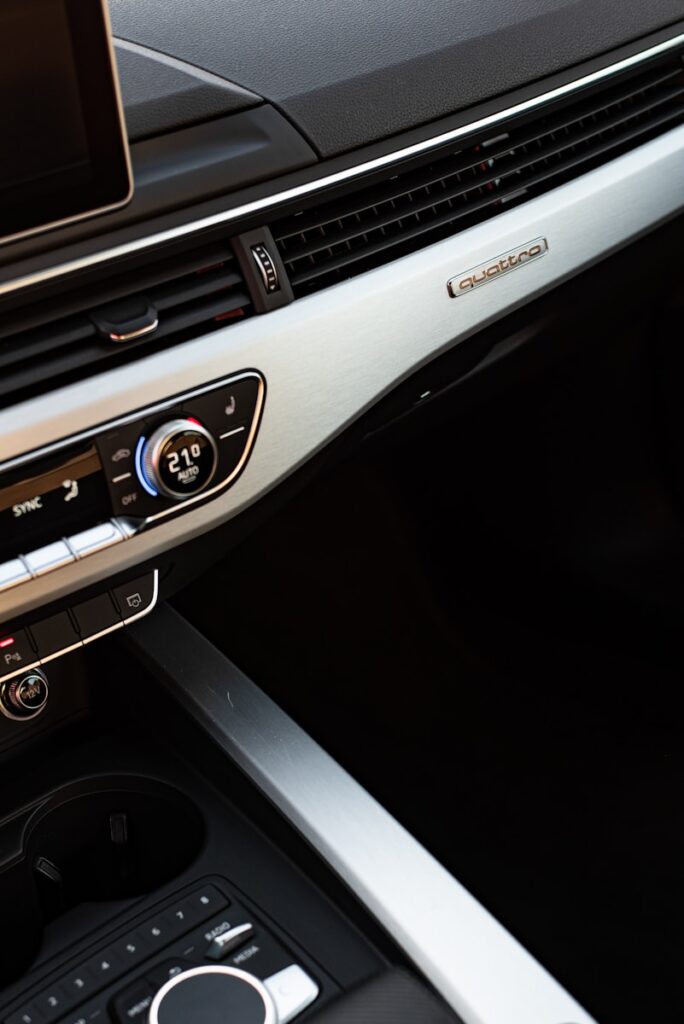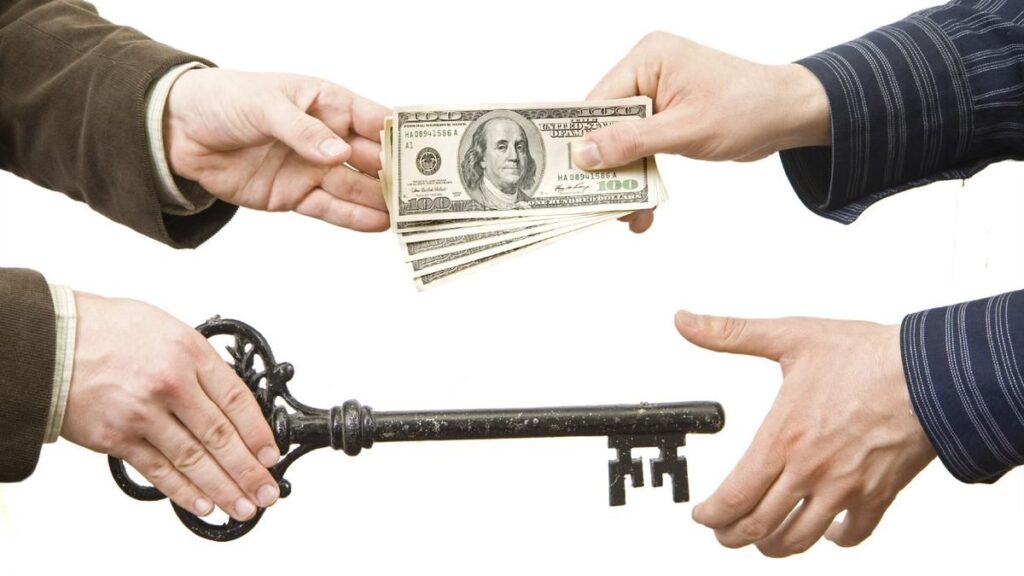
Stepping onto a car dealership lot can often feel like entering a high-stakes negotiation battlefield. While the dream of driving away in a new vehicle is exciting, the reality is that the car industry involves significant sums of money, which can, unfortunately, incentivize some salespeople to employ deceptive tactics. It’s crucial for consumers to remain vigilant, as many professionals are trained to close deals quickly, sometimes resorting to questionable methods to secure a sale.
It’s important to clarify that not all car salespeople are disingenuous; indeed, many pride themselves on genuinely assisting clients. However, the industry is also populated by individuals willing to say or do anything to “put pen to paper and seal the deal,” as the context highlights. The last thing any buyer wants is to experience the regret of a bad purchase, especially when a substantial car loan is involved.
To navigate this complex landscape effectively, consumers must be armed with knowledge. This comprehensive guide will expose fifteen pervasive lies car salespeople commonly tell to rush your purchase, allowing you to recognize these ploys and protect your interests. By dissecting these strategies, we aim to empower you with the clarity needed to negotiate smarter and ensure you drive away with confidence, rather than a lingering sense of being misled.
1. **The Deal Is Only Good for Today**
One of the most frequently employed high-pressure tactics in the automotive sales world is the insistence that “The Deal Is Only Good for Today.” Salespeople use this statement to create an artificial sense of urgency, aiming to make you feel as though a special offer will vanish if you don’t commit immediately. This aggressive approach is meticulously designed to “reel in consumers who need a car and don’t want to miss out on a great deal,” as the context clearly explains.
The underlying goal of this fabrication is to rush you into an impulsive decision, preventing you from fully considering your options, shopping around, or simply taking the time you need to think through such a significant purchase. It plays on the “fear of missing out,” compelling buyers to act swiftly before they believe a valuable opportunity slips away. However, it’s crucial to understand that “no one should rush you through the process of buying a car.”
In reality, while some manufacturer promotions might have an expiration date, the dealership itself controls its own pricing strategies. The context confirms that “if a dealer is truly motivated to sell, they’ll likely offer the same deal—or something very close to it—tomorrow, next week, or even next month.” Therefore, if you ever feel unduly rushed by this tactic, the most empowering action you can take is to “walk away and take your time,” seeking a dealership that respects your buying process.
Read more about: Trouble on the Tarmac: Six Convertibles Reviewers Wish They Never Drove Off the Lot – Unpacking What Makes a Drop-Top Truly Dreadful

2. **You Look Great in That Car**
Another subtle yet effective tactic employed by car salespeople is the compliment, often expressed as, “You Look Great in That Car.” This statement is not typically an objective observation about your aesthetic appeal behind the wheel, but rather a strategic maneuver. If you visit a dealership, become captivated by a particular vehicle, enjoy a test drive, and return with visible enthusiasm, a salesperson is likely to “butter you up.”
The context describes this as a way they’ll “do so by telling you how good you look behind the wheel.” While a genuine compliment can be pleasant, in a sales environment, it serves a specific purpose: to tap into your emotional connection with the vehicle and enhance your desire to purchase it. This taps into vulnerabilities like vanity, making you feel good about the car and yourself, thereby increasing the likelihood of a sale.
It’s important to remember that “while you might look great in the car, that’s beside the point.” The focus should remain on the vehicle’s features, suitability for your needs, and, most importantly, the financial terms of the deal, rather than on personal flattery. Sales professionals are trained in “psychological profiling” and may “use information against you, including vanity,” to influence your decision or even “upsell you on a more expensive car or options package.”
Read more about: Mastering ‘Worse’ and ‘Worst’: Your Essential Guide to Navigating Common Grammar Pitfalls

3. **I Can Give You a Lot of Money for Your Trade-In, So Visit the Dealership**
Many consumers planning to purchase a new vehicle also intend to trade in their current one, hoping for a fair value. A common lure from car salespeople is the promise, “I Can Give You a Lot of Money for Your Trade-In, So Visit the Dealership.” This sounds appealing, as everyone wants the best possible return on their old car, but it’s frequently a strategic ploy rather than a genuine offer.
The context clearly states that while they “might promise you a lot for your old hoopty,” the reality is that “they’ll make a bargain-basement offer when you get to the car dealership.” This discrepancy highlights a fundamental tactic: the primary goal is “getting you in the door where they can work their magic and, hopefully, sell you a car.” The enticing trade-in offer serves as bait to get you to the physical location.
This is often a “classic numbers game,” designed to manipulate your perception of value. By leading you to believe you’re receiving an “above-market offer on your trade-in,” the dealer can subtly “justify charging more for the new car—or distract you from negotiating on financing terms.” The truth is that “trade-in values are based on wholesale market prices,” not inflated promises. Dealers often “make up for it by adding hidden fees, increasing the price of the new car, or adjusting loan terms” if they seem to offer a high trade-in value. Consumers are strongly advised to “research your trade-in’s true market value” before stepping onto the lot.

4. **The Price Is Non-Negotiable**
When you encounter a vehicle you truly desire, a car salesperson might boldly declare, “The Price Is Non-Negotiable.” This is presented as an unyielding truth, but as the context unequivocally states, “That’s another lie that comes out of the mouths of many car salespeople.” This assertion is particularly effective when dealing with buyers who have already “fallen in love with specific makes and models.”
The tactic capitalizes on your emotional attachment to the car. If you are also “desperate to buy sooner rather than later,” such aggressive declarations can be highly persuasive, leading you to believe that further negotiation is futile. The intention is to shut down any attempt to secure a better deal by presenting the sticker price as an immutable figure.
However, the “reality is that any price can be negotiated.” No matter how firm a salesperson seems, there is almost always room for discussion and adjustment. Consumer advocates consistently advise, “Never accept a non-negotiable sticker price.” Your willingness to negotiate and understand market values for the vehicle you’re interested in is a powerful tool to counter this common deception.
Read more about: Unmasked: 9 Fishing Rod Frustrations That Drive Anglers to Seek Superior Quality

5. **The Interest Rate Is the Lowest You Can Get**
For many car buyers, financing is a critical component of their purchase. Salespeople often present financing options with the claim, “The Interest Rate Is the Lowest You Can Get,” aiming to instill a sense of certainty and finality regarding the loan terms. This statement suggests that their offering is the absolute best available, making further inquiry seem unnecessary.
However, the context strongly advises, “If you need financing, look around. Don’t just accept what the car dealership offers.” Dealerships frequently have incentives to offer rates that benefit them, not solely the consumer. “They might offer a higher rate than necessary to get a commission from the bank,” creating a profitable margin for themselves while you remain under the impression that you’ve secured the most favorable terms possible.
The consequence is that “you’re left feeling like you got the best interest rate possible,” when in fact, a better rate might be available elsewhere. It is crucial to independently research and compare financing options from multiple lenders, including banks and credit unions, before committing to a dealership’s offer. This proactive approach ensures you genuinely secure the most competitive interest rate for your car loan.
Read more about: Mastering ‘Worse’ and ‘Worst’: Your Essential Guide to Navigating Common Grammar Pitfalls

6. **I Can Get You The Monthly Price You Want Without Increasing the Price of the Vehicle**
When buyers express concerns about their monthly budget, a common response from car salespeople is, “I Can Get You The Monthly Price You Want Without Increasing the Price of the Vehicle.” This sounds like a perfect solution, as it appears to address your primary financial concern without altering the advertised cost of the car itself. It seems to be a win-win scenario, easing immediate financial pressure.
However, this seemingly helpful offer often comes with a significant hidden cost. The context reveals how this is achieved: a “car salesperson can get you the monthly price you want without increasing the vehicle price by extending the length of the loan.” By stretching the repayment period over more months, the individual monthly payment decreases, but the overall financial burden escalates.
Consequently, “while the purchase price might remain the same, you’ll pay more than you bargained for by the time you’re done paying for the car.” A longer loan term typically means more interest accrues over time, making the vehicle considerably more expensive in the long run. Consumers should focus not only on the monthly payment but also on “the auto loan’s length, interest rate and overall cost” to avoid paying significantly more than anticipated. It is vital to “know what those numbers should be, according to your budget, before you go into the dealership.”

7. **The Car You Want Is Here**
A particularly frustrating and deceptive tactic is the “bait-and-switch,” often initiated by the lie, “The Car You Want Is Here.” This typically occurs when a consumer inquires about a specific vehicle they saw advertised, perhaps online or in print. The dealership representative will confirm its availability, telling you “what you want to hear” to encourage your visit to the lot.
However, upon your arrival, the narrative changes dramatically. The context warns, “Once you arrive, don’t be surprised if they tell you the car was sold.” This sudden unavailability of the advertised vehicle is not an unfortunate coincidence but a calculated part of the deception. The true objective is to get you physically present at the dealership, overcoming the initial hurdle of getting you through the door.
Following this revelation, there will inevitably be a “but” – meaning, “they’ll have something else you might like.” The critical issue, however, is that “the car they show you will cost more than the vehicle advertised.” This tactic is a direct manifestation of “bait-and-switch scams,” designed to increase the salesperson’s bottom line by luring you in with an attractive offer for a non-existent vehicle, then presenting a more expensive alternative.
Read more about: Mastering ‘Worse’ and ‘Worst’: Your Essential Guide to Navigating Common Grammar Pitfalls

8. **The Contract Is As We Discussed — All You Have to Do Is Sign It**
After what might seem like a lengthy and exhaustive negotiation process, a salesperson might present the final paperwork with a reassuring statement: “The Contact Is As We Discussed — All You Have to Do Is Sign It.” This phrase is intended to convey trust and finality, implying that everything agreed upon is accurately reflected in the document and that your part is simply to affix your signature.
However, the context issues a strong warning: “Don’t fall for that whopper of a lie.” It reveals a disturbing practice where “it’s not uncommon for car salespeople to change the numbers just before getting customers to sign the contract.” This last-minute alteration of figures, hoping you’re too tired or trusting to notice, can lead to significant financial disadvantages for the unsuspecting buyer.
Therefore, the crucial advice is to thoroughly “comb over the contract” with extreme care. You must “point out any discrepancies, and get them changed before you put pen to paper to sign it.” Never assume that the printed document perfectly mirrors your verbal agreements. A meticulous review of every line item is your ultimate protection against these eleventh-hour manipulations, ensuring that the terms you agreed upon are indeed the terms you commit to.
Navigating the car-buying process requires more than just knowing a few tricks; it demands a deep understanding of the subtle and not-so-subtle deceptions that can emerge at any stage. Having dissected the initial ploys designed to get you in the door and over the first hurdles, our journey into the labyrinth of car salesperson lies continues. It’s about building a comprehensive defense, arming yourself with the knowledge to scrutinize every assurance and challenge every claim, ultimately securing a deal that truly benefits you.
We now turn our attention to additional pervasive falsehoods, delving into how salespeople might mislead you about a vehicle’s history, limit your perceived negotiation power, create artificial competition, or even prolong the sales process to wear down your resolve. Each of these insights serves as another crucial piece of armor in your quest for a transparent and fair car purchase. By understanding these further tactics, you can transform from a potential victim of high-pressure sales into a confident and informed negotiator.
Read more about: Arnold Schwarzenegger’s Unstoppable Lineup: Exploring the Icon’s Legacy of Power and Enduring Might

9. **The Carfax Report Is Clean — So, the Vehicle Has Never Been in an Accident**
One of the most insidious claims a car salesperson might make, particularly when selling a used vehicle, is that because “The Carfax Report Is Clean,” the car has therefore “Never Been in an Accident.” This statement is designed to provide a false sense of security, implying that a spotless report from a well-known service guarantees a vehicle’s pristine past and current condition. Buyers often trust these reports implicitly, making this a powerful reassurance in the sales pitch.
However, a clean Carfax report does not automatically equate to a clean bill of health or an accident-free history. The context clearly explains that “if an accident wasn’t reported, it won’t be listed on Carfax.” This means that any repair work done privately, or incidents where no insurance claim was filed, will simply not appear. As Jake McKenzie, a manager for Auto Accessories Garage, astutely points out, “unless the owner of the car made an insurance claim, any accidents or flooding would not show up on a Carfax report.” Some dealers might even tell you the Carfax system is “down” if a report does not come back clean, hoping you won’t investigate further.
The danger here is that a buyer might purchase a vehicle with hidden damage, previous flood history, or undisclosed mechanical issues that a Carfax report, by its very nature, cannot uncover. Such issues could lead to costly, unexpected repairs down the line, completely eroding any perceived value from the purchase. This lie capitalizes on a common misunderstanding of how vehicle history reports are compiled and what their limitations are.
To truly protect yourself, it is imperative to go beyond just reviewing a Carfax or AutoCheck report. Always arrange for a pre-purchase inspection (PPI) by a trusted, independent mechanic. This small investment is a “small price to pay to avoid thousands of dollars in unexpected repairs down the road” and will provide a thorough, unbiased assessment of the vehicle’s actual condition, uncovering any hidden problems that a clean report might mask.

10. **I Can’t Discount the Vehicle Beyond the Rebate**
When you’re deep into negotiations, a car salesperson might pull out the line, “I Can’t Discount the Vehicle Beyond the Rebate,” presenting it as the absolute limit of their flexibility. This tactic attempts to frame any manufacturer rebate as the dealership’s final act of generosity, implying that they are sacrificing their profit margins to offer you this special price. It aims to shut down further negotiation by suggesting that the dealer has no additional room to move on the price.
However, this is a calculated deception. The context explicitly states, “Don’t allow a car salesperson to trick you into believing the rebate is the best they can do.” The crucial distinction here is that “The carmaker provides the rebate.” This means the rebate is a marketing incentive from the manufacturer, intended to boost sales, and it does not come out of the dealership’s pocket. Therefore, any gratitude for the rebate should be directed towards the car manufacturer, “rather than the car dealership.”
The reality is that beyond any manufacturer rebate, there is almost always still room for the dealership to negotiate its own selling price. Salespeople use this lie to make you feel like you’re already getting the maximum possible saving, thereby discouraging you from demanding further price reductions directly from the dealer’s margin. This allows them to maintain a higher profit on the vehicle itself, despite the rebate.
Consequently, consumers should never accept this statement as the final word. You should always “demand a price reduction on the price” from the dealership, separate from and in addition to, any manufacturer rebates. Understanding this distinction empowers you to push for a better deal, knowing that the dealership still has levers to pull, such as negotiating the dealer profit margin or considering holdbacks and other incentives not visible to the consumer.
Read more about: The 14 Most Common Mistakes 15 Out of 20 First-Time Car Buyers Make: A Lifehacker’s Guide

11. **I Have Someone Else Ready to Purchase This Vehicle**
Few things create a quicker surge of urgency during car shopping than hearing, “I Have Someone Else Ready to Purchase This Vehicle.” This line is a classic “impending event” tactic, designed to create a false sense of competition and scarcity around the specific car you’re interested in. The salesperson’s aim is to leverage your “fear of missing out” (FOMO), pressuring you into signing a contract before you’ve had adequate time to consider your options.
This aggressive statement is intended to “get you to make a move…fast.” If you’ve developed an emotional attachment to a particular car, hearing that it might be snatched away by another buyer can trigger an impulsive decision, leading you to “sign the contract before thinking things through.” Ronald Burdge, a lemon law attorney, notes that “People get more interested in having something that they know someone else wants or already has. Car salespeople often take advantage of that.”
While it’s possible that another buyer genuinely exists, more often than not, “the story is just a sales gimmick to get you to spring for the purchase right then and there,” as Burdge explains. Salespeople are trained to use such tactics to bypass thoughtful consideration and rational decision-making. Rushing into a major purchase like a car can often lead to buyer’s remorse, especially if you overlook crucial details or accept unfavorable terms.
The most effective counter-strategy to this high-pressure tactic is simple yet powerful: be prepared to walk away. “It’s never wise to rush through the process — even if you miss out on something you want.” You can directly challenge the claim by asking, “Are you telling me that if I come back tomorrow, you can’t sell me the car?” Remember, if a deal feels too rushed or pressured, “you can find that identical car elsewhere, whether at another dealership or on the internet,” or simply choose a different vehicle that meets your needs.
Read more about: Buyer Beware: 8 Critical Brake Problems That Could Ground Your High-Mileage Sports Car Dreams Long Before 40,000 Miles

12. **We Won’t Make Any Money Off Your Trade-In Car**
When it comes to trading in your old vehicle, a common lament from car salespeople is, “We Won’t Make Any Money Off Your Trade-In Car.” This statement is often deployed to justify a lowball offer for your vehicle, attempting to convince you that the dealership is doing you a favor by even taking your old car off your hands. It’s a psychological play designed to lower your expectations and make you feel less entitled to a better trade-in value.
However, the context unequivocally states, “Don’t fall for this lie.” The truth is that car dealerships are in the business of making a profit, and your trade-in is no exception. While the value of trade-ins can vary, the dealership “will find a way to make money off yours.” They have multiple avenues to do so, whether by reselling it on their own lot, sending it to auction, or wholesaling it to another dealer. In nearly every scenario, they aim to “make more than they’re willing to tell you.”
This lie is essentially a tactic to “take your trade-in vehicle without giving you much of a discount on a new car.” By downplaying the value of your old car, they aim to maximize their profit on both ends of the transaction – selling you a new car at a higher effective price and acquiring your trade-in for less than its market worth. It ties into the larger “numbers game” where dealers manipulate figures to their advantage, often making up for perceived “losses” in one area with gains in another.
To counter this, thorough research is your best defense. Before stepping onto the lot, “research your trade-in’s true market value” using reliable tools and guides. Knowing precisely what your car is worth arms you with the confidence to challenge any undervalued offers. If a dealership insists they won’t make money, consider selling your car privately or exploring offers from other dealers or online car buying services, ensuring you receive its fair market value.
Read more about: Navigating Car Loans: Why a Down Payment of Over 20% is Now Widely Recommended and What It Means for Your Finances

13. **The Car Has Been Meticulously Maintained**
When presented with a used car, a salesperson might eagerly assure you, “The Car Has Been Meticulously Maintained.” This sounds incredibly appealing, conjuring images of a vehicle that has been cared for with utmost diligence, implying reliability and fewer future repair costs. Such a claim is a powerful selling point, especially for used vehicles where past care is a significant concern for buyers.
However, as the context wisely advises, “Words are just that — words. What you need is proof.” A verbal assurance of meticulous maintenance, no matter how confidently delivered, is insufficient. Without tangible evidence, such as comprehensive service records, repair receipts, or a detailed maintenance log, these claims remain unsubstantiated and should be treated with skepticism. A salesperson’s job is to sell, and sometimes that involves making a car sound better than it might actually be.
Unless “the salesperson has records to back up their words, take them with a pinch of salt.” The absence of documented history leaves you vulnerable to unforeseen issues that could arise from neglect or deferred maintenance. Relying solely on a salesperson’s word for something as critical as a vehicle’s upkeep can be a costly mistake, potentially leading to significant repair expenses shortly after purchase.
Therefore, it is paramount to “have an independent mechanic examine the vehicle thoroughly before sealing the deal.” This pre-purchase inspection by a third party will objectively assess the car’s true condition, identifying any existing problems or areas of concern, regardless of what the Carfax report or the salesperson suggests. This professional evaluation provides the concrete evidence you need to either confirm the claim of meticulous maintenance or uncover the reality.
Read more about: Beyond the Script: 7 Unforgettable Movie Moments Where Co-Stars’ Shock Was Absolutely Genuine

14. **Stay Here a Minute — I’m Going to Talk to My Manager**
During what often feels like an interminable negotiation process, a car salesperson might excuse themselves with, “Stay Here a Minute — I’m Going to Talk to My Manager.” This tactic is almost a theatrical intermission in the sales performance, designed to prolong the interaction and create a sense of internal deliberation on the dealer’s part. It implies that a higher authority is genuinely reviewing your offer, adding gravity to the negotiation.
However, this is frequently “all a ruse,” according to the context. While they might genuinely consult a manager, the primary strategy behind this prolonged pause is to extend the transaction, wearing down your patience and resolve. Jeff Bartlett, Consumer Reports’ managing editor for cars, notes that salespeople “will draw out the process until you’re exhausted.” They understand that fatigue can make a buyer more susceptible to accepting a deal just to bring the arduous process to an end.
The goal is to make you feel so worn out and invested in the time spent at the dealership that “you buy the car just to get things over with.” This psychological tactic leverages your desire for closure, transforming your eagerness to conclude the negotiation into a vulnerability that salespeople can exploit. You might assume progress is being made, when in fact, the delay itself is the strategy.
To combat this, it’s vital to control the pace of the negotiation. If a salesperson employs this tactic, you can assert your boundaries by stating, “Give us your best price,” and then, “if the salesperson offers to go back and forth negotiating with their manager, tell them to text or email you the results.” This allows you to step away, regain your composure, and avoid being held hostage by the dealership’s timeline, protecting you from buying out of exhaustion rather than sound judgment.
Read more about: Pattie Mallette’s Enduring Prayer: Tracing Justin Bieber’s Unforgettable Journey Through Stardom’s Highs and Lows

15. **You Don’t Need to Test Drive the Car**
Perhaps one of the most audacious and dangerous lies a car salesperson can utter is, “You Don’t Need to Test Drive the Car.” This statement is a massive red flag, attempting to bypass an absolutely critical step in the car-buying process. Whether explicitly stated or implied through rushed procedures, any effort to dissuade you from a test drive indicates a serious lack of transparency or, worse, a deliberate attempt to conceal potential issues with the vehicle.
The context is unequivocal: “If a car salesperson tries to get you to skip the test drive, hit the brakes on negotiations.” A test drive is non-negotiable, regardless of whether you are buying a brand-new vehicle or a used one. It is the only way to personally assess the car’s performance, comfort, handling, and identify any immediate problems that might not be apparent from a visual inspection or history report.
A proper test drive should not be a quick spin around the block. It needs to be substantial: “Go for at least half an hour, and ensure you go on streets and highways and put the vehicle through its paces.” This extended and varied drive allows you to experience the car in different conditions, simulating your actual driving habits. It helps you ascertain if the vehicle truly meets your needs and if there are any subtle mechanical issues, odd noises, or discomforts that only emerge with time on the road.
Skipping this crucial step is akin to buying a house without walking through it. It leaves you vulnerable to a myriad of potential problems and significantly increases the risk of buyer’s remorse. Always insist on a comprehensive test drive; it’s your right as a buyer and a fundamental part of making an informed decision about one of the most significant purchases you’ll make.
**Don’t Be Duped: Drive Away with Confidence**
Stepping into a car dealership doesn’t have to be a battleground where you feel destined to be outmaneuvered. The high-stakes environment and the training salespeople receive can feel intimidating, but remember, the power ultimately lies with the informed consumer. By arming yourself with knowledge, understanding these common lies and deceptive tactics, and maintaining a firm resolve, you can shift the balance of power squarely in your favor.
Read more about: Mastering ‘Worse’ and ‘Worst’: Your Essential Guide to Navigating Common Grammar Pitfalls
The ultimate takeaway is preparation and patience. Do your research on vehicle values, financing rates, and trade-in worth *before* you even set foot on the lot. Never feel pressured to make an immediate decision, and always be willing to walk away if a deal doesn’t feel right or if a salesperson resorts to manipulative ploys. Your vigilance is your greatest asset in avoiding buyer’s remorse and ensuring that you drive off not just in a new car, but with the confidence of a smart, well-executed purchase. With this comprehensive guide, you are now better equipped to navigate the dealership landscape and secure a deal that truly serves your best interests.




